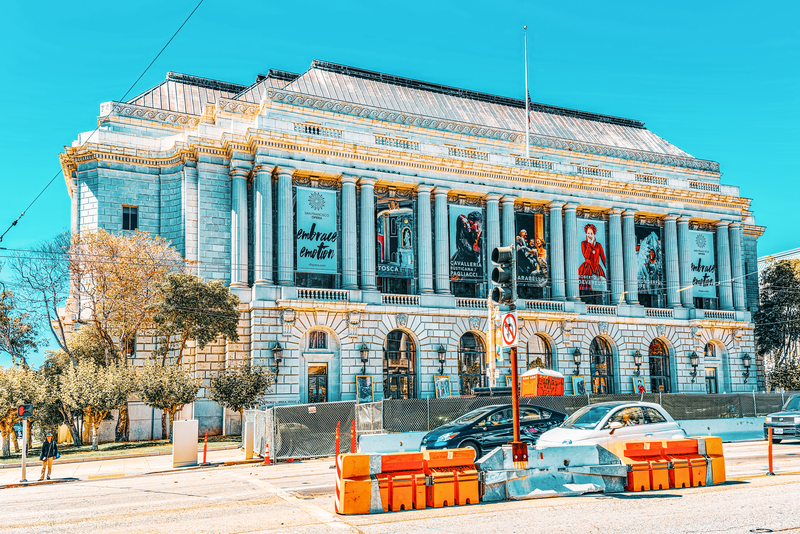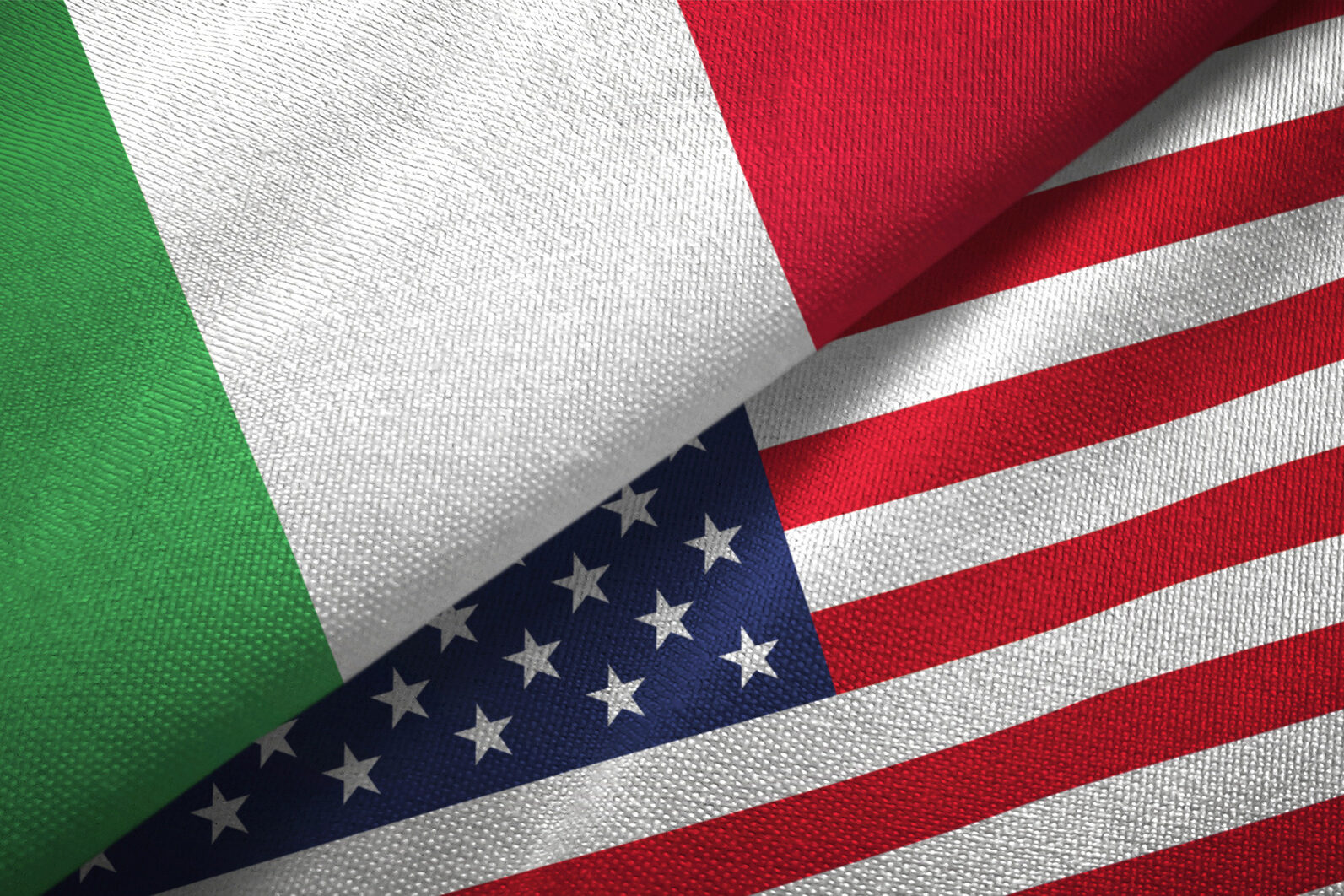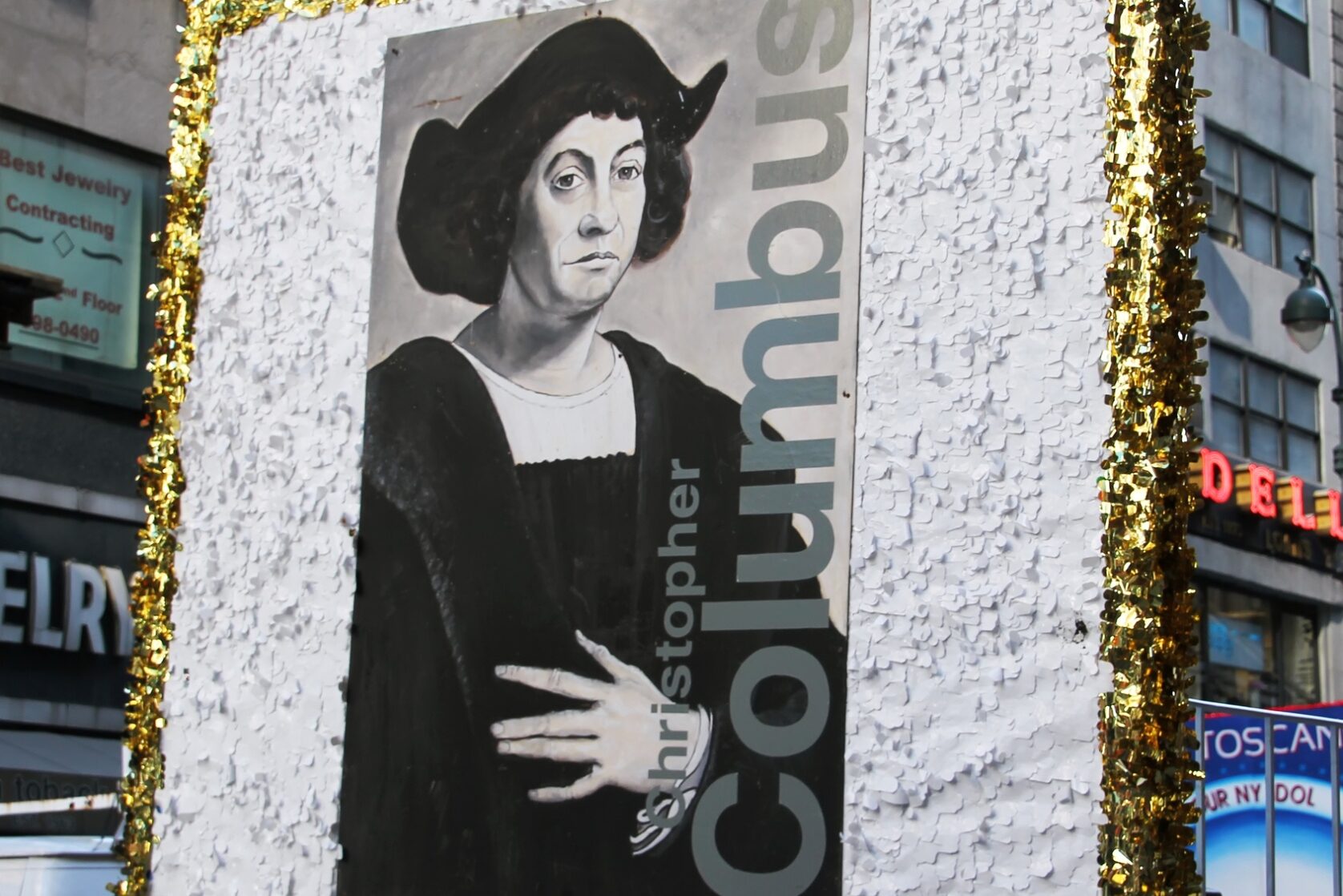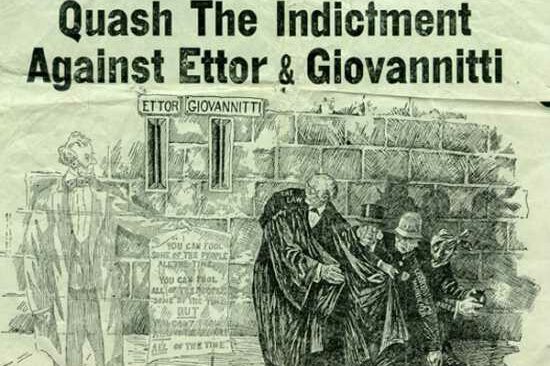Dear readers,
As the San Francisco Opera First Nighters, dressed in furs and finery, file into the San Francisco Opera House each September when the new season begins, let me share this bit of early San Francisco history with you.
Few, if any, attendees realize it was Sicilian-American opera lovers – mostly crab fishermen living in early San Francisco -to whom they owe a debt of gratitude for first financing the Grand Opera in San Francisco, as per dreams spun by Gaetano Merola. Encouraged by A. Farina, then the San Francisco Crab Fishermen Association manager, many fishermen mortgaged their homes, and some lost them, to build an opera company and opera house for San Francisco. Officially, the San Francisco Grand Opera first season began on September 26, 1923, but the late Louise Dana (1904-2000) who served as unpaid secretary to the San Francisco Opera Company during the early years, had other recollections. Luise (Stradi) Dana was born in Pontasserchio, a little town near Pisa, the first child of Giulio and Marietta Strada. Her father, a musician, sailed from Genoa, Italy, and arrived in New York in 1907, and by working odd jobs, arrived in Northern California many months later.
Unable to speak English, his first job upon arrival was washing dishes for the lumber camps at Fort Bragg, which supplied wood to rebuild homes and businesses in San Francisco after the great earthquake and fire in 1906. In a few years, her father saved enough money from his $30 a month dishwashing job to buy passage for Louise and her mother to America, and by late 1910 they joined him in San Francisco, where he found work in the produce market.
The produce business agreed with Giulio Stradi, and by 1920 he had become financially successful. He had an interest in several produce markets, among them the downtown Freckles and Halas markets. He had many friends, among them Gaetano and Rosa Merola, from Naples, who were frequent guests at the Stradi family home. Mr. Merola often played the piano, and after dinner everyone would discuss opera and music and the idea of bringing opera to San Francisco.
Over time, a plan took shape. Mr. Merola would produce the opera, and Mr. Stradi and his friends would put up the money. Establishing a new opera company and producing the opera in 1921 was a huge undertaking. Louise, sixteen years old had graduated from Heald Business College in San Francisco that year, and at Merola’s request became his secretary. As the only employee of the San Francisco Opera Company, her duties were many and her salary was often unpaid or delayed. The local Italian newspaper L’Italia donated a small space on Columbus Avenue, which served as the San Francisco Opera Office. Louise made the bank deposit, kept the books, answered the phones, and even arranged for the Southern Pacific Railroad to bring San Francisco patrons to the performances. The first performances, I Pagliacci, Carmen and Faust, took place in the Summer of 1922. Louise and her father Giulio Stradi attended all three. These were artistic successes, but a financial disaster. Mr. Merola had to ask Mr. Stradi and his friends for additional money to cover the losses.
By 1923, thanks to the artistic success showcased at Stanford Stadium, Gaetano Merola met the Bay Area’s moneyed folks, from the Alexanders to the Zellerbachs, with the Flyshakers and Goldstein in between. In fact, with the exception of A.P. Giannini, there was not one Italian surname listed among the 45 sponsors of the San Francisco Grand Opera’s first season, at the San Francisco Exposition Auditorium, September 26, 1923. After that “first season” opened with Puccini’s La Bohème, Gaetano Merola never looked back, and the sacrifices of those pescatori were forgotten until 1932. On the afternoon of October 14, 1932, the day prior to the official opening of the Opera House, there was a special reception for the unveiling of a commemorative plaque to honor those Italians who aided Merola in starting the San Francisco Opera Company. Mayor Angelo Rossi arranged the event. It was Ettore Patrizi, editor of L’Italia, who insisted that the forgotten original supporters of Mr. Merola be invited to the opening night.
**
More September dates:
- Neptune, the planet, was discovered on September 23, 1846.
- The Supreme Court of the United States was born on September 24, 1755.
- Christopher Columbus set sail on his second voyage to America on September 25, 1493.
- John Philip Sousa, the March composer, performed his first public concert on September 26, 1895.
- Samuel Adams, a hero of the American Revolution, was born September 27, 1722, in Boston and was a Boston Tea Party leader.
- Confucius’ birthday is on the 28th of September. Born in China nearly 2,000 years ago, he said, What you do not wish for yourself, do not do to others.
- Enrico Fermi, a Nobel Prize winner in physics, was born on September 29, 1901.
- The Flintstones TV cartoon premiered on September 30, 1960. Joseph Barbera, with William Hanna of the Hanna and Barbera Studio, produced some 100 Tom and Jerry shorts and created dozens of characters, including Huckleberry Hound, Yogi the Bear, and the Flintstones.
Cari lettori,
Mentre i First Nighters dell’Opera di San Francisco, vestiti con pellicce e abiti eleganti, sfilano nel Teatro dell’Opera di San Francisco ogni settembre all’inizio della nuova stagione, permettetemi di condividere con voi questo pezzo della prima storia di San Francisco.
Fra loro pochi, se non nessuno, sanno che è con gli amanti dell’opera siculo-americani – per lo più pescatori di granchi che vivevano all’inizio di San Francisco – che abbiamo un debito di gratitudine perché per primi finanziarono la Grand Opera di San Francisco, secondo i sogni di Gaetano Merola. Incoraggiati da A. Farina, allora direttore della San Francisco Crab Fishermen Association, molti pescatori ipotecarono le loro case, e alcuni le persero, per costruire una compagnia d’opera e un teatro dell’opera per San Francisco. Ufficialmente, la prima stagione della San Francisco Grand Opera iniziò il 26 settembre 1923, ma la defunta Louise Dana (1904-2000), che prestò servizio come segretaria non retribuita alla San Francisco Opera Company durante i primi anni, aveva altri ricordi. Luise (Stradi) Dana era nata a Pontasserchio, un piccolo paese vicino Pisa, primogenita di Giulio e Marietta Strada. Suo padre, musicista, salpò da Genova, in Italia, e arrivò a New York nel 1907 e, facendo lavori saltuari, arrivò nel nord della California molti mesi dopo.
Non sapendo parlare inglese, il suo primo lavoro all’arrivo fu quello di lavare i piatti per i depositi di legname di Fort Bragg, che fornivano legname per ricostruire case e attività commerciali a San Francisco dopo il grande terremoto e l’incendio del 1906. In pochi anni, suo padre risparmiò abbastanza soldi dal lavoro di lavapiatti da 30 dollari al mese per comprare il passaggio per Louise e sua madre per l’America, che alla fine del 1910 lo raggiunsero a San Francisco, dove trovò lavoro nel mercato dei prodotti ortofrutticoli.
L’attività di produzione fu concordata con Giulio Stradi e nel 1920 ebbe successo finanziario. Aveva interesse per diversi mercati di prodotti ortofrutticoli, tra cui i mercati del centro di Freckles e Halas. Aveva molti amici, tra cui Gaetano e Rosa Merola, napoletani, che erano ospiti assidui nella casa della famiglia Stradi. Il signor Merola suonava spesso il pianoforte e dopo cena tutti discutevano di opera e musica e dell’idea di portare l’opera a San Francisco.
Con il tempo prese forma un progetto. Il signor Merola avrebbe prodotto l’opera e il signor Stradi e i suoi amici avrebbero messo i soldi. Fondare una nuova compagnia d’opera e produrre l’opera nel 1921 fu un’impresa enorme. Louise, sedici anni, si era laureata quell’anno all’Heald Business College di San Francisco e, su richiesta di Merola, divenne la sua segretaria. Essendo l’unica dipendente della San Francisco Opera Company, i suoi compiti erano molti e il suo stipendio spesso non veniva pagato o veniva ritardato. Il quotidiano locale italiano L’Italia donò un piccolo spazio in Columbus Avenue, che fungeva da ufficio dell’Opera di San Francisco. Louise faceva il deposito bancario, teneva i libri contabili, rispondeva ai telefoni e faceva persino in modo che la Southern Pacific Railroad portasse i clienti di San Francisco agli spettacoli. Le prime rappresentazioni, I Pagliacci, Carmen e Faust, ebbero luogo nell’estate del 1922. Louise e suo padre Giulio Stradi assistettero a tutte e tre. Furono successi artistici, ma un disastro finanziario. Merola dovette chiedere a Stradi e ai suoi amici ulteriori soldi per coprire le perdite.
Nel 1923, grazie al successo artistico esibito allo Stanford Stadium, Gaetano Merola conobbe persone ricche della Bay Area, dagli Alexander agli Zellerbach, passando per i Flyshakers e i Goldstein. Con l’eccezione di A.P. Giannini, infatti, non c’era nessun cognome italiano tra i 45 sponsor della prima stagione della San Francisco Grand Opera, al San Francisco Exposition Auditorium, il 26 settembre 1923. Dopo quella “prima stagione” che si aprì con La Bohème di Puccini, Gaetano Merola non si voltò mai indietro, e i sacrifici di quei pescatori furono dimenticati fino al 1932. Nel pomeriggio del 14 ottobre 1932, il giorno precedente l’apertura ufficiale del Teatro dell’Opera, ci fu uno speciale ricevimento per l’inaugurazione di una targa commemorativa per onorare quegli italiani che aiutarono Merola a fondare la San Francisco Opera Company. A organizzare l’evento fu il sindaco Angelo Rossi. E fu Ettore Patrizi, direttore de L’Italia, a insistere perché alla serata inaugurale fossero invitati i dimenticati e originari sostenitori di Merola.
**
Altre date di settembre:
– Nettuno, il pianeta, fu scoperto il 23 settembre 1846.
– La Corte Suprema degli Stati Uniti nacque il 24 settembre 1755.
– Cristoforo Colombo salpò per il suo secondo viaggio verso l’America il 25 settembre 1493.
– John Philip Sousa, il compositore di March, tenne il suo primo concerto pubblico il 26 settembre 1895.
– Samuel Adams, eroe della Rivoluzione americana, nacque il 27 settembre 1722 a Boston e fu un leader del Boston Tea Party.
– Il compleanno di Confucio è il 28 settembre. Nato in Cina quasi 2.000 anni fa, diceva: ciò che non desideri per te stesso, non farlo agli altri.
– Enrico Fermi, premio Nobel per la fisica, è nato il 29 settembre 1901.
– Il cartone animato televisivo dei Flintstones è stato presentato in anteprima il 30 settembre 1960. Joseph Barbera, con William Hanna dell’Hanna and Barbera Studio, ha prodotto circa 100 cortometraggi di Tom e Jerry e creato dozzine di personaggi, tra cui Huckleberry Hound, l’orso Yogi e i Flintstones.































